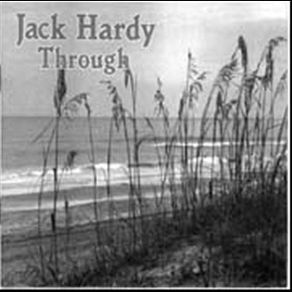Through
Download links and information about Through by Jack Hardy. This album was released in 1990 and it belongs to Songwriter/Lyricist genres. It contains 13 tracks with total duration of 57:09 minutes.

|
|
|---|---|
| Artist: | Jack Hardy |
| Release date: | 1990 |
| Genre: | Songwriter/Lyricist |
| Tracks: | 13 |
| Duration: | 57:09 |
| Buy it NOW at: | |
| Buy on iTunes $9.99 | |
| Buy on Amazon $8.99 | |
Tracks
[Edit]| No. | Title | Length |
|---|---|---|
| 1. | Through (European Mix) | 3:55 |
| 2. | The Crows | 2:15 |
| 3. | No Man | 3:46 |
| 4. | Discover What It Is | 3:52 |
| 5. | What a Strange Thought | 3:44 |
| 6. | No Future | 4:24 |
| 7. | Before You Sing | 6:07 |
| 8. | Elevator | 4:14 |
| 9. | The Knight's Dream | 5:48 |
| 10. | The Nightmare | 4:24 |
| 11. | Four Ways of Framing Spring | 6:11 |
| 12. | The Child | 4:33 |
| 13. | Through (American Mix) | 3:56 |
Details
[Edit]Though you could call him a topical folk singer-songwriter, Jack Hardy has tended to write his songs after reading books of history and literature instead of the newspaper. And since he releases his own albums, not having to heed a record company concerned with clarity as well as sales, it is sometimes difficult for the mere listener to tell, on first or even 50th hearing, exactly what he's talking about in his songs. If you happen to have attended one of his concerts, you might know that "Elevator," which is featured on this, his eighth album, gets its title from the first letters of each of the eight-line verses. Otherwise, you'd be puzzled, and even knowing the title, you might ponder what point the song, which seems to concern criticisms made by a group of songwriters about a female fellow songwriter, is making. Occasionally, as in "No Future," the point is reasonably clear, as Hardy decries gentrification in a song seemingly developed out of the news and the urban experience rather than scholarship. The album's most striking song is "Four Ways Of Framing The Spring," which takes off from Marcel Duchamp's dadaist notion that anything becomes art when you put a frame around it, and goes on to reflect on suicide. But more often, the highly poetic, often obscure lyrics take the listener to a rural world of myth and monarchy, seemingly supplying a soundtrack to a series of stories not available in the songs themselves. Hardy savors syllables with his raspy voice, leading an acoustic group occasionally augmented by electric guitar and synthesizer; his singing conveys tone and implies intent, but the listener, while moved, is still liable to end up wondering just what it was all about.